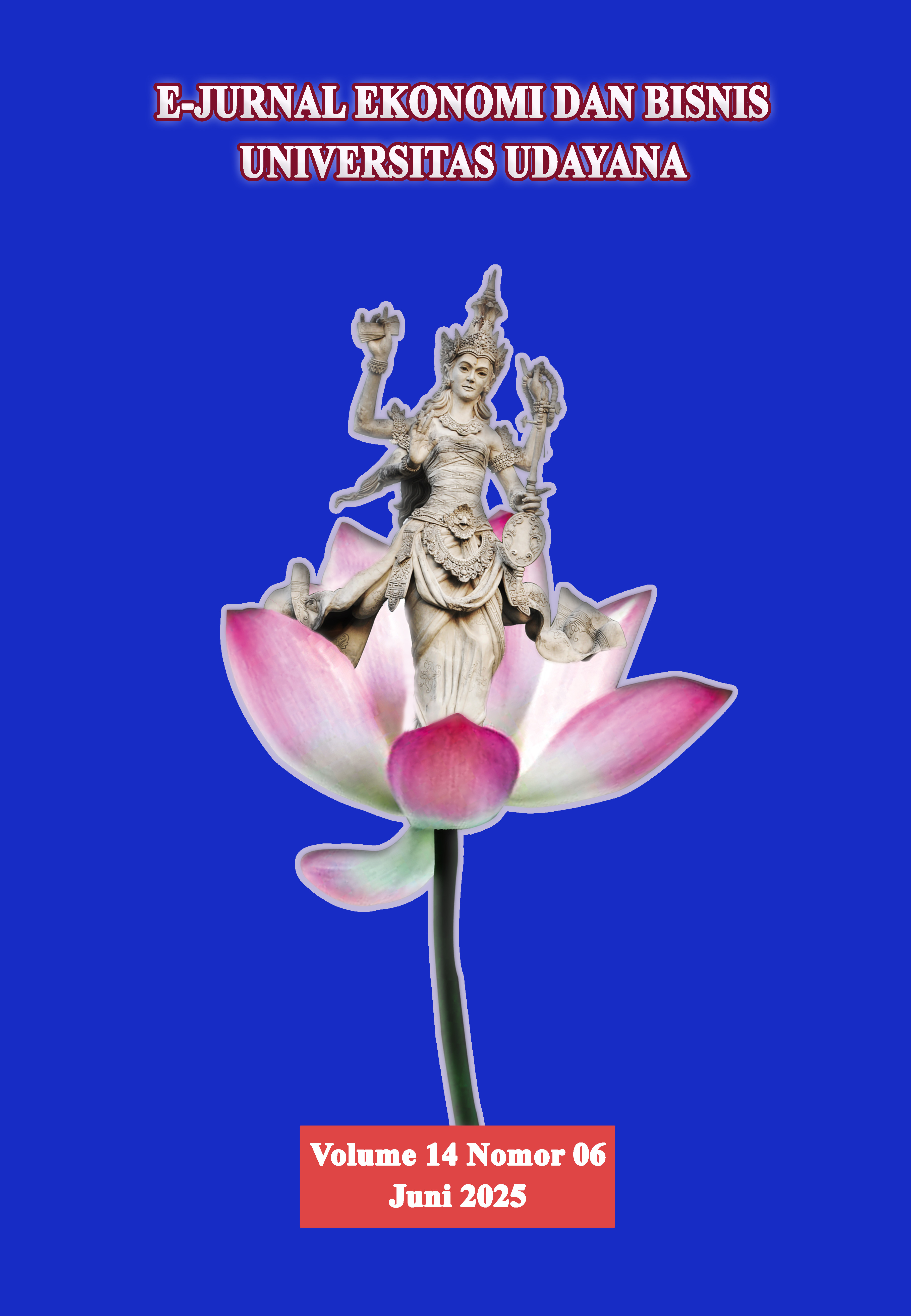PENGARUH NILAI TUKAR DAN INVESTASI ASING LANGSUNG TERHADAP UTANG LUAR NEGERI INDONESIA: PENDEKATAN ARDL
Abstract
Utang luar negeri (ULN) memainkan peran penting dalam perekonomian Indonesia, namun fluktuasi nilai tukar dan investasi asing langsung (FDI) dapat mempengaruhi keberlanjutannya. Penelitian ini mengkaji sejauh mana kedua faktor tersebut berdampak pada utang luar negeri Indonesia. Studi ini bertujuan untuk menganalisis pengaruh nilai tukar dan arus masuk investasi asing langsung terhadap utang luar negeri Indonesia serta mengevaluasi implikasi volatilitas nilai tukar dalam jangka panjang dan pendek. Penelitian ini menggunakan pendekatan Autoregressive Distributed Lag (ARDL) untuk mengestimasi hubungan antara nilai tukar, investasi asing langsung, dan utang luar negeri Indonesia selama periode 1970–2023. Hasil analisis menunjukkan bahwa depresiasi rupiah sebesar 1 persen meningkatkan utang luar negeri sebesar 1,28 persen, sedangkan kenaikan investasi asing langsung sebesar 1 persen meningkatkan utang luar negeri sebesar 11,34 persen, dengan tingkat signifikansi di bawah 5 persen. Penelitian ini menegaskan pentingnya stabilitas nilai tukar dalam pengelolaan utang luar negeri yang berkelanjutan. Meskipun investasi asing langsung dapat menjadi sumber modal alternatif, ketergantungan berlebihan meningkatkan risiko eksternal. Oleh karena itu, diperlukan kebijakan ekonomi yang strategis untuk mengoptimalkan manfaat investasi asing langsung sekaligus memitigasi dampak negatifnya terhadap utang luar negeri Indonesia.


















